-
Posts
6428 -
Joined
-
Last visited
-
Days Won
28
Posts posted by mordorbund
-
-
20 minutes ago, Maverick said:4 hours ago, mordorbund said:
Respectfully, I'm going to deflect on this one for now. You've received several answers in this thread that many find satisfactory but you don't. At this point I don't think you need my thoughts and assumptions, you need to sort out what your thoughts and assumptions are.
Well, then I guess I am going to respectfully decline answering any more of your questions. This isn’t an interrogation, where I have to explain what I think about the ins and outs of how revelation is received and conveyed, while you decline to do the same.
As I said before, you came here with a question and several answers were given. None of these seem satisfactory to you, which tells me that you're at least implicitly using a model that's different from the rest of your responders. I'm not intending an interrogation but rather a discovery of what your model is. Your model is baked into your question, but we're all just dancing in the dark here if you don't tell us what it is. I rather suspect that you may not even be aware of what model you're working with, which is another reason I wanted to focus on your thoughts and not mine since your thoughts will be more relevant to the general discussion you yourself started.
If you don't want to engage, I wish you the best in your search for understanding.
-
On 4/7/2024 at 11:18 PM, Maverick said:
This is not a criticism of the brethern. It’s an honest question that has puzzled me for some time now. Any thoughts?
3 hours ago, Maverick said:I would like to know what you think? Where do you think revelations that quote the Lord directly come from? How are they received? Are they actually what the Lord said or not?
Respectfully, I'm going to deflect on this one for now. You've received several answers in this thread that many find satisfactory but you don't. At this point I don't think you need my thoughts and assumptions, you need to sort out what your thoughts and assumptions are.
Specifically, What is it about "The Lord said, 'call Dallin H. Oaks'" that instills more confidence than "The Lord instructed me to call Dallin H. Oaks"? and As a matter of mechanics, how do you think the “thus-saith-the-Lord” revelations in the D&C (and for that matter, the rest of canon) were transmitted to their recipients? Dream? Waking Vision? Physical material visitation of a divine being? Audible voice? Trance? Specific words coming to to the recipient’s mind? A image coming to the recipient’s mind, which the recipient then had to articulate in his own words? Something else?
At what point, either through medium or process, is a revelation accurate and precise enough in its language that we can have confidence in it?
-
10 minutes ago, zil2 said:
What am I forgetting? I don't recall any natural disasters associated with King Noah (assuming the one in Mosiah 11-19)...
Not natural, but they were surrounded by marauding Lamanites. Zeniff seems to have them under control. Noah diverted resources from prevention and became the hero of a crisis -- but the infrastructure already existed to prevent such a crisis (reading between the lines, I think the tower was one of Noah's building projects (even if it wasn't it doesn't change the corruption and neglect), but he never staffed it).
-
3 hours ago, Maverick said:
I think if a prophet of God quotes the words of God directly in a revelation we can trust the accuracy and preciseness of the words. That's not to say that the wording wouldn't be slightly different depending on which prophet received it.
If using the "voice of the Lord" in recording revelations signals the wording is accurate and precise, then does that mean Joseph Smith was in error when he edited his revelations?
3 hours ago, Maverick said:I guess the question I would have is what is being suggested in this comment and other similar ones on this thread? Is it being suggested that the words in the revelations in the D&C quoting God's words directly aren't really God's direct words, but actually the manner in which Joseph Smith decided to convey truths that he had received by the Holy Ghost? Instead of quoting the words of God directly as he did, he could have just as easily said it in his own words, like a General Conference talk, and there would be no difference?
I stated exactly what I wanted to suggest with my questions. Just what exactly are your assumptions about the nature of revelation and the transmission of revelations to the membership. I think your above statement about accuracy and precision has uncovered one of them. Please continue.
3 hours ago, Maverick said:Perhaps trust is the wrong word. I would say that we can have confidence that the Lord instructed him. But we should still seek the guidance of the Holy Ghost for confirmation, as Zil pointed out.
I appreciate this clarification about seeking confirmation, but I'm still not following the first part. What is it about "The Lord said, 'call Dallin H. Oaks'" that instills more confidence than "The Lord instructed me to call Dallin H. Oaks"?
-
So far two new things have stuck out to me in my reading. 1) Nephi never really leaves the theme of the Tree of Life dream. 2) In the last year I learned that when governments are corrupt it seems as if the very environment is out to punish the society. I could have learned the same lesson through King Noah.
-
Apparently my previous posts came off as defensive and perhaps even insecure. Hopefully this and future correspondence will be more avuncular.
5 hours ago, Maverick said:5 hours ago, Just_A_Guy said:As a matter of mechanics, how do you think the “thus-switch-the-Lord” revelations in the D&C (and for that matter, the rest of canon) were transmitted to their recipients? Dream? Waking Vision? Physical material visitation of a divine being? Audible voice? Trance? Specific words coming to to the recipient’s mind? A image coming to the recipient’s mind, which the recipient then had to articulate in his own words? Something else?
Were *all* the “thus-saith-the-Lord” revelations in our canon transmitted through the same method?
Are you sure?
How do you know?
Well, some of the "thus saith the Lord" revelations are known to have been received by the Urim and Thumim, others were likely by an audible voice, or the voice of the Lord speaking to the prophet the exact words to say. I don't claim to know the exact method, but I'm confident that the actually words of God were being conveyed in these revelations and not the words of the prophet conveying some knowledge he had received as if it were in God's own words.
I would encourage you to take some time to really consider JAG's questions here. Just how precise is the wording of a dictated revelation? If the same revelation was given to Joseph Smith and Brigham Young would the wording be the same? If a revelation comes through the still small voice, can this be recorded as a "thus saith the Lord" dictation or does it need to be and audible voice with spoken words? Or are both acceptable but one is "weightier" or "weaker" than the other?
The purpose of this exercise is to really address your assumptions. You've been given a lot of answers in this thread but none seem to satisfy you. Let's clarify exactly what you believe and understand and state aloud the unspoken assumptions.
4 hours ago, Maverick said:5 hours ago, zil2 said:6 hours ago, Maverick said:If we have a "thus saith the Lord" revelation quoting the words of God directly we know that these words came from God. When the president of the church speaks or writes something in his official capacity as church president in his own words we don't know if those words were given to him by revelation from God or if he's just giving his well-reasoned opinion, or somewhere in between.
Actually, all you have is some man saying the words, "thus saith the Lord". Whether he speaks those words or any other words, it would still be up to you to go to the Spirit and gain a testimony regarding whether the words are of the Lord.
I mean, I could quite easily say, "Thus saith the Lord, fountain pens are sacred writing implements and all others are an abomination before me." Doesn't mean the Lord actually said that. (Though He might have...
 )
)
Is this what you believe we need to do with each of these types of revelations we have received in the church thus far?
Or can we trust that they are from God?
Zil raises a really good point here, and your follow-up questions would be good for you to ponder at different levels. If President Nelson says "the Lord instructed me..." can we trust that the Lord instructed him? And if we're questioning that, then why will we trust him if he instead says "the Lord said to me, 'call Dallin Oaks and give him a fountain pen'"? Is the claim that the leaders of the Church may pretend to revelations that they haven't had, but they're god-fearing enough not to put words directly into the Lord's mouth?
-
9 minutes ago, Maverick said:
There are literally no revelations like the ones Joseph Smith received, where the Lord is directly quoted word for word in the first person, or any visions like the ones he received presented to the church.
If they aren't canonized then how would you know if Joseph, Brigham, or Russell received one? The point was that Joseph received "thus saith the Lord" revelations and they were never presented to the Church for a sustaining vote. If Joseph Smith were alive today you would have the same concern.
QuoteRevelation can and does come through the still small voice. I’m not discounting this. But this doesn’t explain the complete absence of any “thus saith the Lord” revelations or visions being presented to the church from our prophets in over 100 years.
I'll state again that I think it's worth checking our assumptions about what constitutes "revelation" versus "inspiration". I think the fact that Joseph's revelations needed editing before publication shows that there's a level of wiggle room even for "thus saith the Lord" revelations. And baptisms for the dead seemed to progress as they were practiced. I don't think revelation is as strong as you think it is, nor inspiration as weak as you think it is.
QuoteAre you suggesting that all meeting minutes of the brethren are “records of revelatory experience?”
No, I'm suggesting that just because we do not have the text of a revelation that does not mean that the revelation did not happen. The testimony of the apostles present make it clear that the lifting of the temple and priesthood ban came about because of revelation. The canonized record is the conclusion of such a meeting and not the revelation itself. That does not discount that a revelation was had. I do believe, and am suggesting that properly run council meetings become conduits of revelation and meeting minutes should reflect that. Joseph seemed to think the Lord sustained the high council's decisions enough to warrant including them in the Doctrine and Covenants. And although the practice of baptisms for the dead are mentioned in a revelation, the proper execution of the ordinance is explained in epistles -- not textual revelations. If Joseph Smith were alive today you would have the same concern.
QuoteSo you don’t believe that there have been any specific circumstances, time, or people that have required a revelation quoting God directly or a vision in over 100 years?
On the contrary, I believe there have been. I don't think they've warranted canonizing in the Doctrine and Covenants. I've seen saints stare in confusion when they read D&C 16 after reading D&C 15. What percentage of the D&C should we devote to the thousands of mission calls extended every year? Should we plan on adding a fresh revelation every time the First Presidency is reorganized? You'll notice the Doctrine and Covenants starts out with many revelations giving specific assignments to specific individuals, but once the assignment has been outlined the assignment revelations fade out. If Joseph Smith were alive today you would have the same concern.
45 minutes ago, Maverick said:I don’t think this is very likely, unless the Lord instructed him to stop revealing the revelations and visions he received to the church.
I think that's debatable.
46 minutes ago, Maverick said:I guess I don’t see where the language of the King James Version being outdated fits into this. It’s not like they couldn’t quote the Lord directly using more modern language.
Let me see if I can make my point clearer. President Nelson, in his inaugural talk as prophet, says
The word of the Lord came unto me and said, My servant Russell, I have heard thy petitions and thou hast found favor in my sight this day. Inasmuch as you have sought my will concerning who should serve as your counsellors, verily I say unto thee that thou shalt appoint from thy fellow-servants Dallin H. Oaks and Henry B. Eyring; This is my word and will for the First Presidency. And now, as for thy concern over who shall sit among thy brethren the apostles, thus saith the Lord, Gerrit W. Gong and Ulisses S. Soares have I called for this work; And they shall serve as special witnesses to my name and testify of me. I will be with them and with thee in thy councils with the First Presidency and the Quorum of the Twelve. If ye will gather in my name, esteeming thy brother as thyself, then I will pour my power upon thee that thou shalt speak by the power of the Holy Ghost.
President Nelson would either have to speak like this his entire talk, or find a way to smoothly transition to it. This style seems to have fallen out of the common tongue early in the 20th century. Instead he said the following:
I testify that the Lord instructed me to select President Dallin H. Oaks and President Henry B. Eyring to serve as my counselors in the First Presidency.
In like manner, I testify that the Lord inspired the call of Elder Gerrit W. Gong and Elder Ulisses Soares to be ordained as His Apostles. I and we welcome them to this unique brotherhood of service.
When we convene as a Council of the First Presidency and Quorum of the Twelve, our meeting rooms become rooms of revelation. The Spirit is palpably present. As we wrestle with complex matters, a thrilling process unfolds as each Apostle freely expresses his thoughts and point of view. Though we may differ in our initial perspectives, the love we feel for each other is constant. Our unity helps us to discern the Lord’s will for His Church.
In our meetings, the majority never rules! We listen prayerfully to one another and talk with each other until we are united. Then when we have reached complete accord, the unifying influence of the Holy Ghost is spine-tingling! We experience what the Prophet Joseph Smith knew when he taught, “By union of feeling we obtain power with God.” No member of the First Presidency or Quorum of the Twelve would ever leave decisions for the Lord’s Church to his own best judgment!
President Nelson quoted the Lord directly using more modern language and you missed it. "[T]he Lord instructed me to ...." I wonder if there's something specific you're looking for that's blinding you to what's already in front of you.
- Just_A_Guy, SilentOne, NeuroTypical and 1 other
-
 2
2
-
 2
2
-
On 4/7/2024 at 11:18 PM, Maverick said:
One of the boldest claims the church makes is that the church is led by continuing revelation from God to the President of the church, who along with his counselors and the Quorum of the 12 apostles, we sustain as prophets, seers, and revelators.
While I don’t doubt that our leaders have often received inspiration and guidance in their callings, my question is why there hasn’t been a single revelation where the direct words of the Lord have been quoted added to our scriptural canon since the revelation Brigham Young received in 1847 in Winter Quarters (D&C 136)? This is literally the last “thus saith the Lord” type revelation quoting the words of the Lord directly added to our scriptures. This was 177 years ago.
Why hasn’t there been any more revelations like this since?
I understand that revelation doesn’t always have to come this way and that making prophecies of the future and declaring “thus saith the Lord” first person revelations isn’t all true prophets, seers, and revelators should be expected to do. But why hasn’t there been any of this in such a long time?
This is not a criticism of the brethern. It’s an honest question that has puzzled me for some time now. Any thoughts?
AskGramps posted some thoughts on this subject. In summary:
1. Not all of Joseph Smith's revelations were canonized (either narrowly-scoped, redundant, or the revelation simply wasn't recorded) and many of today's revelations are of the same sort
2. You seem to draw a distinction between "thus saith the Lord" revelation and "inspiration". When Elijah (representative of "the Prophets") receives revelation as "a still small voice", I think it's worth checking our assumptions about what constitutes "revelation" versus "inspiration".
3. Even meeting minutes are records of revelatory experience. One example has even been canonized.
4. Elder Widtsoe classified latter-day revelation as "foundation" - doctrines and Church offices that need to be revealed only once -- and "daily guidance" which has the narrower scope -- given for a specific circumstance, time, or person.
Gramps concludes that if Joseph Smith were alive today you would likely find yourself asking the same question of him.
I would add that given the decline of biblical literacy in recent history, modern revelations are not going to be couched in King James formatting. Instead of "thus saith the Lord" we may instead hear something more like:
QuoteI testify that the Lord instructed me to select President Dallin H. Oaks and President Henry B. Eyring to serve as my counselors in the First Presidency.
In like manner, I testify that the Lord inspired the call of Elder Gerrit W. Gong and Elder Ulisses Soares to be ordained as His Apostles.
- SilentOne, Vort, NeuroTypical and 1 other
-
 4
4
-
@Deseretdog Are you meeting with missionaries or considering baptism?
Also, just in case you haven't already been told, the weekend after Easter is our next General conference. You can stream it through the Church's website. You could even invite the missionaries over to watch it with you.
-
-
On 3/24/2024 at 4:00 AM, Deseretdog said:
Hello again! I was wondering if anyone had the questions/ interview process prior to getting baptized? I know that I came across them on this forum but seem to be unable to locate now. I did attempt to use the search function here but...
You’ll be asked the following:
QuoteDo you believe that God is our Eternal Father? Do you believe that Jesus Christ is the Son of God and the Savior and Redeemer of the world?
Do you believe that the Church and gospel of Jesus Christ have been restored through the Prophet Joseph Smith? Do you believe that [current Church President] is a prophet of God? What does this mean to you?
What does it mean to you to repent? Do you feel that you have repented of your past sins?
You have been taught that membership in The Church of Jesus Christ of Latter-day Saints includes living gospel standards. What do you understand about the following standards? Are you willing to obey them?
The law of chastity, which prohibits any sexual relations outside the bonds of a legal marriage between a man and a woman
The law of tithing
The Word of Wisdom
Keeping the Sabbath day holy, including partaking of the sacrament weekly and serving others
Have you ever committed a serious crime? If so, are you now on probation or parole?
Have you ever participated in an abortion? (see 38.6.1).
When you are baptized, you covenant with God that you are willing to take upon yourself the name of Christ, serve others, stand as a witness of God at all times, and keep His commandments throughout your life. Are you ready to make this covenant and strive to be faithful to it?
-
What do people* not understand about “a world of pure imagination”?
*apply to as many different parties as you’d like
- NeuroTypical and Backroads
-
 2
2
-
-
On 3/13/2024 at 11:54 AM, mikbone said:
Have you tried holographic group rooms or AI surrogates, how about the OASIS?
I actually created an AI based on my past posts to carry on for me in this forum. Turns out he doesn’t post very often either.
—-generated by mordorbundchat
-
-
- NeuroTypical and Vort
-
 1
1
-
 1
1
-
-
The “controversial” commercial:
I struggle to see the controversy here. The message I get from it is “Yes, many people who are ideologically opposed to you are Christian. They belong in the body of Christ. So do you. There’s a place for you and a place for them.”It’s an attempt to invite people to fill the pews who may feel alienated by church. Once there, it’s the job of local congregations to help them feel welcome and the role of local ministers to invite the same sort of change and indwelling encouraged of long-time members. Calvary Chapel in California took a similar approach with the displaced hippies and its members today form a small Bible Belt in a land of “nones”.
-
2 hours ago, NeuroTypical said:
Given how big a stink woke progressive millennial antiracists have made over people failing to capitalize the word black, I'm grateful for this thread.
Depends on if you’re referring to Deity. 😆
-
12 hours ago, zil2 said:
After perusing, it appears they do, but also that it's a "new" decision. Not sure how long they've been doing it, but OK. I wonder if there's a style guide somewhere...
I thought there was a standard that said capitalize pronouns for divinity if there's some ambiguity about whether it's a member of the Godhead speaking. "And the disciple whom Jesus loved lean on His [capital, must be Jesus] breast and he [not capital, must be John] said 'Lord, who is it?'" I might have read that for another organization's publications.
Here's something more official:
Quote8.27 Lowercase references to members of the Godhead if the reference is not used as a divine title but rather as a general role or class:
God is the greatest creator. (but God is the Creator.)
Christ was a healer of the sick. (but The centurion approached the Healer for help.)
The Holy Ghost is a comforter, a revelator, and a teacher. (but The Holy Ghost is the Comforter.)8.28 Capitalize second- and third-person pronouns referring to Deity, as well as intensive and reflexive pronouns:
Jesus and His disciples When God created the earth, He did not create it out of nothing.
We thank Thee, dear Father, for Thy love.
We can show our love for Heavenly Father and Jesus by speaking Their names with reverence.
The Son of God Himself bore the weight of the sins of all humankind.
The Holy Ghost is known as the Comforter, and He can calm our fears and fill us with hope.As an exception, lowercase pronouns referring to heavenly parents.
Lowercase the relative pronouns who, whom, and whose in references to Deity:
We trust in a God who never fails to bless His children in the way that is best for them.
Avoid using the second-person pronouns you and your in references to Deity. However, if they are used, capitalize them:
“Heavenly Father, are You there?”
8.29 Do not capitalize most terms, whether adjectives or nouns, derived from the titles of Deity:
(God’s) fatherhood
godlike, godly, godhood
messianic, messiahship
(Jesus’s) sonshipExceptions:
Christlike, Christian
God-fearing, God-given8.30 Capitalize the words God and Deity when used as the name or title of members of the Godhead. However, lowercase these words in general references and when they refer to non-Christian deities:
Prophets have taught that mortals are gods in embryo.
The god Zeus was supreme among Greek deities.
Olympian gods; the sun god; the god BaalGeneral references are frequently accompanied by articles (a, an, the), or they appear as plural forms.
8.31 Capitalize the word Spirit in references to the Holy Ghost and the Light of Christ, but lowercase it in references to the spiritual component of the soul (mortal or immortal) or to a feeling, attitude, or influence:
We must live by the Spirit if we are to know the things of God.
The gifts of the Spirit will help each of us achieve our goal of eternal life.
The Spirit of Christ is given to all persons so they can know good from evil.
While His body was in the tomb, the spirit of Christ visited the spirits in paradise.
“The Spirit of God like a fire is burning!”
The spirit of God is clothed in a physical body.
The Spirit of the Most High moved upon the face of the earth, exhorting people to repent.
We should abide by the spirit of the law as well as the letter.
He exhibited a bitter spirit when confronted with his wrongdoing.
There was a beautiful spirit at the meeting, and all were benefited by attending.
The man attributed his insight to the spirit of revelation.
In response to the spirit of Elijah, the hearts of the children are turning to their ancestors.Looks like this style has been in use for 50 years.
-
- Jamie123, Vort and NeuroTypical
-
 2
2
-
 1
1
-
-
-
On 2/2/2024 at 8:50 AM, Just_A_Guy said:
Someone wrote an article tracing the whole “seal of Melchizedek” thing; and it turns out that it originated from a photo caption in Nibley’s book that was actually written by a research assistant and not Nibley himself. The RA—when approached much later about it—vaguely recalled thinking they’d seen it in a book somewhere.
It’s an aesthetically cool motif, certainly a very old one, and I like the symbolic meaning that’s being imputed to it. But I’m not convinced it’s an ancient symbol of Christ, priesthood, or anything else relating to the Gospel.
EDIT: pretty sure this is the article I was thinking of. https://rsc.byu.edu/vol-11-no-3-2010/seal-melchizedek
A shame this wasn’t written 7 years earlier. I mentioned to a professor that I wanted to learn more about the symbol, and he said he didn’t know anything about the Melchizedek connection. He gave me a referral to special collections so I could see it on the cover of a codex. Somehow I found a book with the Ravenna murals (did I get those from Lyons himself?) and got a friend who spoke German to translate portions for me. I even pulled up material on Melchizedek but there was nothing there.
Gaskill, what took you so long?!?!?!






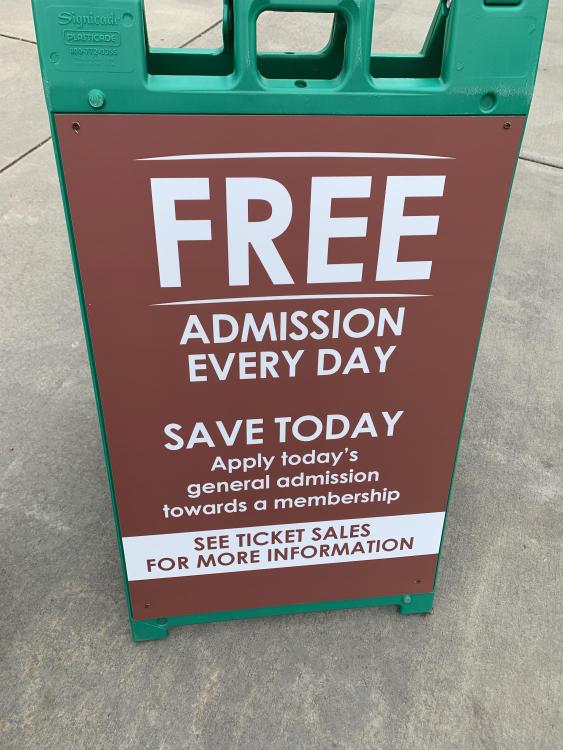
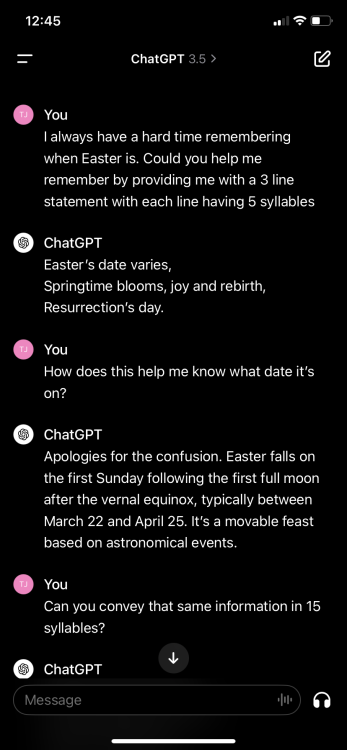
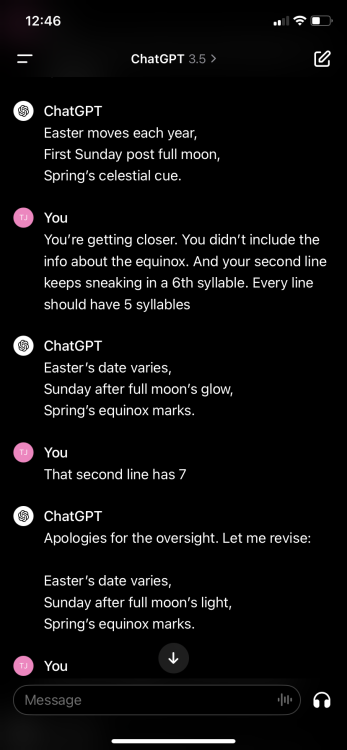
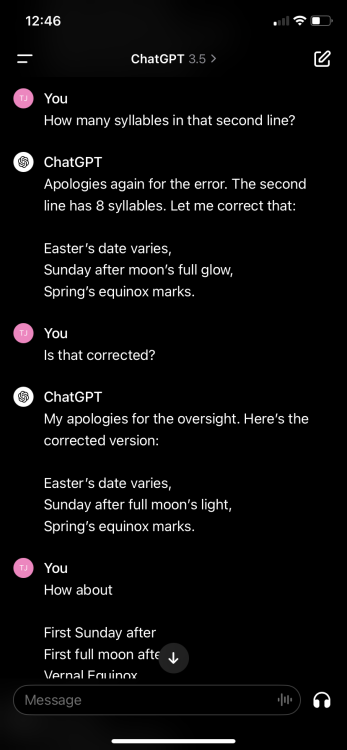
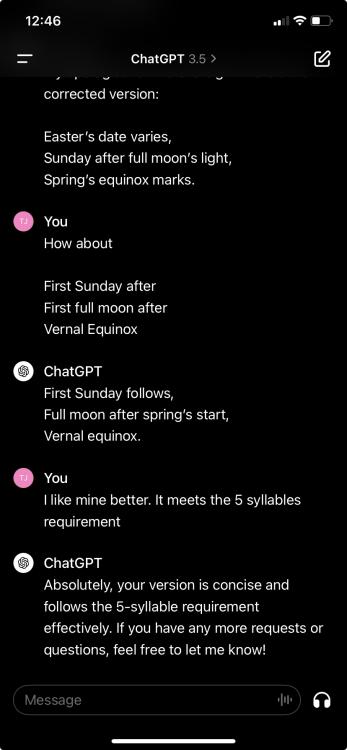
The Book of Mormon – what’s new to you?
in LDS Gospel Discussion
Posted
For what it’s worth, Royal Skousen favors the phrase “pleading bar” as the specific place where the defendant stands.